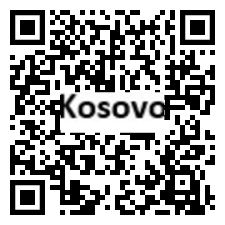Introduction
Background
During the medieval period, Kosovo became the center of a Serbian Empire and saw the construction of many important Serb religious sites. Formerly part of Yugoslavia, Kosovo became independent in 2008. Demonstrating Kosovo’s development into a sovereign, multi-ethnic, democratic country, the international community ended the period of Supervised Independence in 2012.
Geography
Area
total: 10,887 sq km
land: 10,887 sq km
water: 0 sq km
Climate
influenced by continental air masses resulting in relatively cold winters with heavy snowfall and hot, dry summers and autumns; Mediterranean and alpine influences create regional variation; maximum rainfall between October and December
Natural resources
nickel, lead, zinc, magnesium, lignite, kaolin, chrome, bauxite
People and Society
Population
1,964,327 (2023 est.)
Ethnic groups
Albanians 92.9%, Bosniaks 1.6%, Serbs 1.5%, Turk 1.1%, Ashkali 0.9%, Egyptian 0.7%, Gorani 0.6%, Romani 0.5%, other/unspecified 0.2% (2011 est.)
Languages
Albanian (official) 94.5%, Bosnian 1.7%, Serbian (official) 1.6%, Turkish 1.1%, other 0.9% (includes Romani), unspecified 0.1%; note - in municipalities where a community's mother tongue is not one of Kosovo's official languages, the language of that community may be given official status according to the 2006 Law on the Use of Languages
note: these estimates may under-represent Serb, Romani, and some other ethnic minority languages because they are based on the 2011 Kosovo national census, which excluded northern Kosovo (a largely Serb-inhabited region) and was partially boycotted by Serb and Romani communities in southern Kosovo (2011 est.)
Religions
Muslim 95.6%, Roman Catholic 2.2%, Orthodox 1.5%, other 0.1%, none 0.1%, unspecified 0.6% (2011 est.)
Population growth rate
0.62% (2023 est.)
Government
Government type
parliamentary republic
Capital
name: Pristina (Prishtine, Prishtina)
Executive branch
chief of state: President Vjosa OSMANI-Sadriu (since 4 April 2021)
head of government: Prime Minister Albin KURTI (since 22 March 2021)
Legislative branch
description: unicameral Assembly or Kuvendi i Kosoves/Skupstina Kosova (120 seats; 100 members directly elected by open-list proportional representation vote with 20 seats reserved for ethnic minorities - 10 for Serbs and 10 for other ethnic minorities; members serve 4-year terms)
Economy
Economic overview
small-but-growing European economy; non-EU member but unilateral euro user; very high unemployment, especially youth; vulnerable reliance on diaspora tourism services, curtailed by COVID-19 disruptions; unclear public loan portfolio health
Real GDP (purchasing power parity)
$21.226 billion (2021 est.)
$19.166 billion (2020 est.)
$20.247 billion (2019 est.)
Real GDP per capita
$11,900 (2021 est.)
$10,700 (2020 est.)
$11,300 (2019 est.)
Agricultural products
wheat, corn, berries, potatoes, peppers, fruit; dairy, livestock; fish
Industries
mineral mining, construction materials, base metals, leather, machinery, appliances, foodstuffs and beverages, textiles
Remittances
17.95% of GDP (2021 est.)
18.61% of GDP (2020 est.)
15.81% of GDP (2019 est.)
Exports
$3.138 billion (2021 est.)
$1.687 billion (2020 est.)
$2.312 billion (2019 est.)
Exports - partners
United States 16%, Albania 15%, North Macedonia 12%, Germany 8%, Italy 8% (2021)
Exports - commodities
mattress materials, iron alloys, metal piping, scrap iron, building plastics, mineral water, seating (2021)
Imports
$6.128 billion (2021 est.)
$4.187 billion (2020 est.)
$4.454 billion (2019 est.)
Imports - partners
Germany 13%, Turkey 13%, China 10%, Serbia 7%, Italy 6% (2021)
Imports - commodities
refined petroleum, cars, iron rods, electricity, cigars, packaged medicines (2021)
Exchange rates
euros (EUR) per US dollar -
Exchange rates:
0.845 (2021 est.)
0.877 (2020 est.)
0.893 (2019 est.)
0.847 (2018 est.)
0.885 (2017 est.)
Page last updated: Tuesday, December 12, 2023
